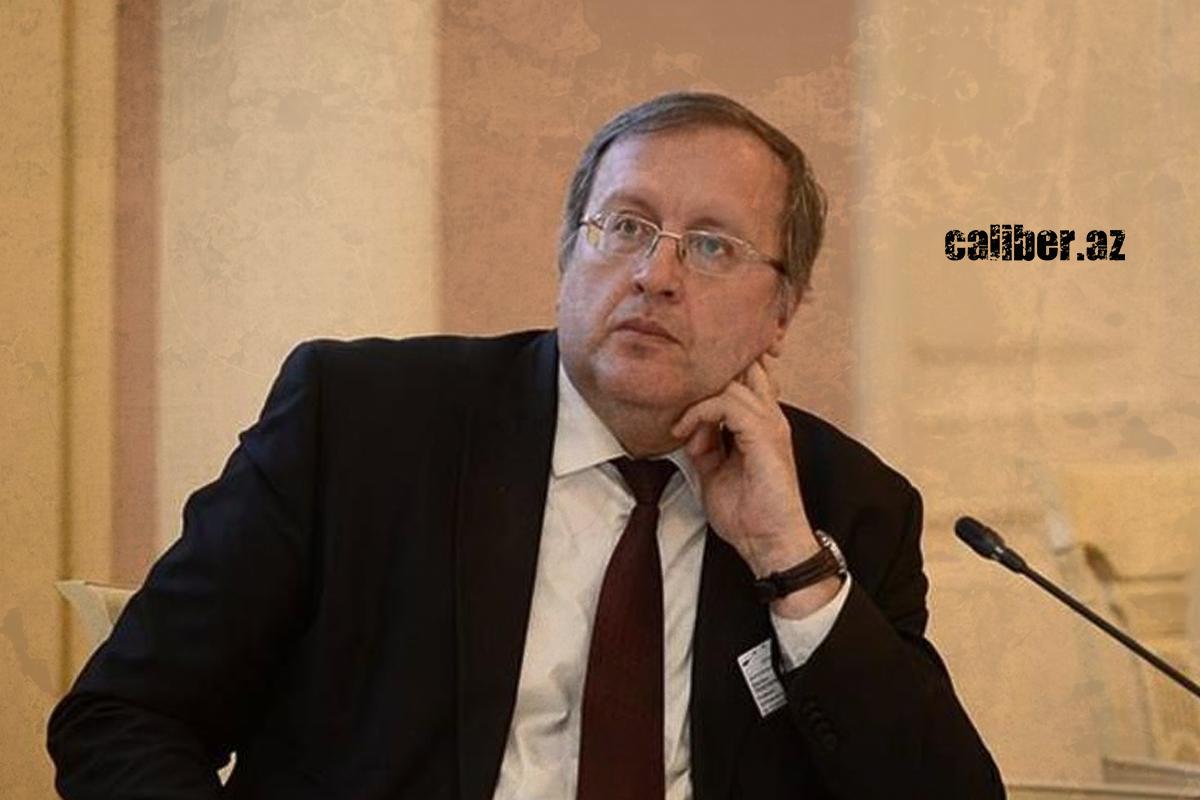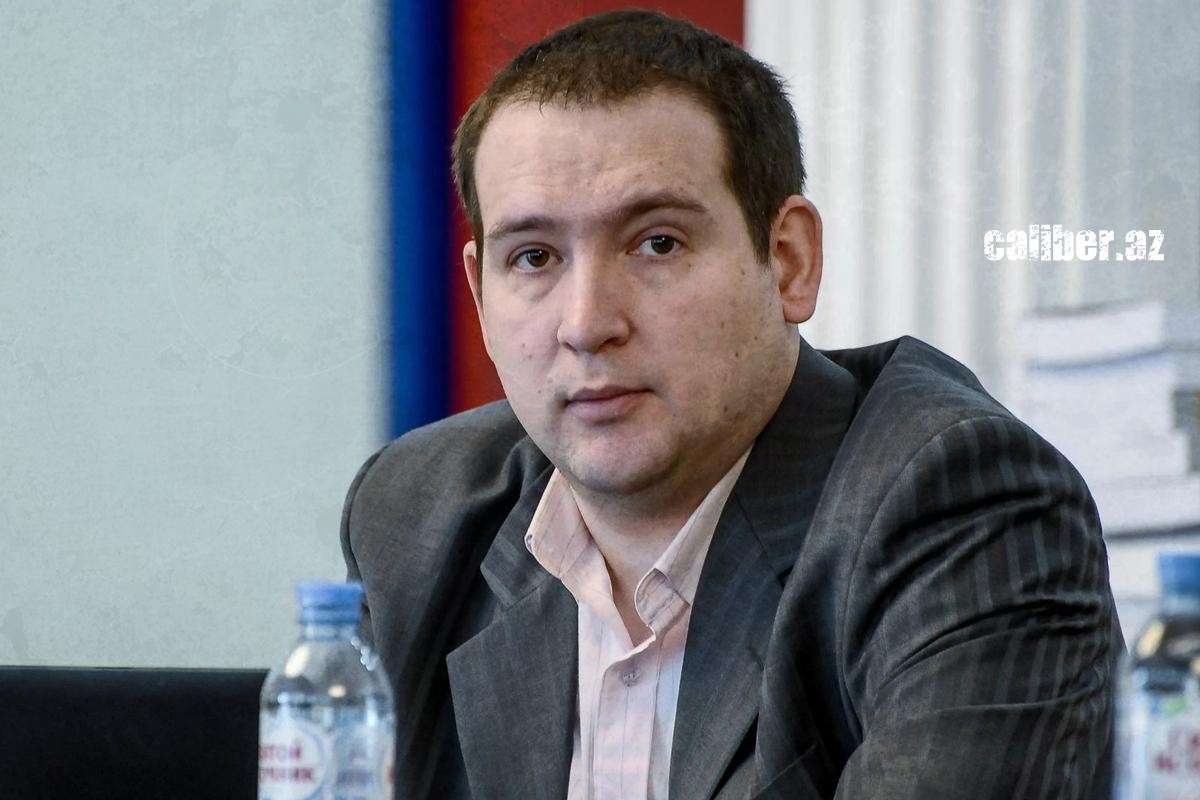Moscow suspends dialogue with Yerevan Experts ponder on the future relationship of "closest allies"
CSTO events have taken place in Moscow this week, but once again Armenia has failed to take part in them. Its absence is yet another confirmation of the view that Yerevan is firmly committed to a boycott of military-political relations with Russia.
How does Moscow view such a clear demarche by Armenia? What mechanisms can Moscow use to bring Yerevan to its senses?

Speaking to Caliber.Az, Stanislav Tkachenko, Doctor of Economic Sciences, Professor at St. Petersburg State University and Russian political scientist, noted that "the surprise in Russia at Armenian diplomacy's drifting away from Russia has long since passed and has been replaced by an increasingly palpable irritation". In his opinion, this applies both to contacts between the governments of the two states and to interaction between parliamentarians.
"In Russia, it seems that Armenia's position on limiting dialogue with Russia and other allied states is explained more by two reasons.
First, it is tempting for the current generation of leaders in Yerevan to blame Russia and the structures it leads (primarily the CSTO) for the failures of Armenian foreign policy in recent years. The most prominent of these failures was the resolution of the Karabakh conflict, which was the worst-case scenario for the nationally oriented Armenian elite: military defeat and flight from the region.
Second, Yerevan has bet on the collective West as a possible protector of Armenia's interests in the confrontation with Azerbaijan, recognising the decline in electoral support and the disillusionment of a significant part of Armenian society with the activities of the 'reformers' associated with Pashinyan. This is a risky and strategically unpromising bet, as the examples of Ukraine and Moldova confirm," the Russian political scientist stressed.
However, according to Tkachenko, Pashinyan and his aides are still under the illusion that their reliance on Brussels and Washington will allow Yerevan to buy time and that some miracle will happen in the future that will change the outcome of the Karabakh conflict or the negative attitude of Armenian citizens towards their rulers.
In our interlocutor's opinion, Moscow's decision to put the dialogue with Yerevan on hold is now a foregone conclusion.
"Everything has already been said, they no longer want to discuss unfounded allegations of 'Russian guilt in the Karabakh disaster'. And nothing new seems to come up, apparently having been advised by the EU and the US. Now the Kremlin and the Russian Foreign Ministry are waiting with interest for Yerevan to realise that the current course is fatal for Armenia's security. Therefore, Yerevan's position has not changed, and the refusal of the parliamentary dialogue only serves to confirm this. Moscow no longer regrets this, but simply observes Yerevan's drama with interest," Tkachenko said.

At the same time, according to Mikhail Neizhmakov, director of analytical projects at the Agency for Political and Economic Communications, a Russian political scientist, the absence of the Armenian delegation at the CSTO Parliamentary Assembly meeting is one of the signals that disagreements between Moscow and Yerevan persist. But at the same time, there are also observed attempts by both sides to conduct a dialogue against the background of the obvious cooling of relations.
"For example, on December 14, 2023, bilateral consultations were held in Yerevan between representatives of the Armenian Ministry of High-Tech Industry and the Russian Ministry of Digital Development, Communications and Mass Media, which essentially touched upon the two sides' disagreements over the broadcasting of Russian TV channels in Armenia. As is known, several stories aired by Russian TV channels (e.g., an episode of the programme 'Tutti's Heir Dolls' dedicated to Nikol Pashinyan) provoked a sharp reaction in Yerevan. Throughout most of autumn and early December 2023, the Armenian press quite actively discussed the possibility of excluding Russian TV channels from the country's Public Multiplex. Nevertheless, the comments made to the media by Robert Khachatryan, Minister of High-Tech Industry of the Republic of Armenia, after the said consultations allow us to conclude that so far there is no talk of such a measure, and Moscow and Yerevan have reached a compromise on these issues," the Russian political analyst noted.
Also, according to him, although Rosselkhoznadzor announced claims to several foodstuffs supplied from Armenia, noting in late November 2023 a "sharp increase in violations" in the sphere of supplies of plant products from Armenia, in early December in Moscow negotiations were held between the head of Rosselkhoznadzor and the head of the Food Safety Inspection Body of Armenia, where the parties tried to mitigate differences and find a common language.
In his opinion, one should also take into account the fact that parallel to the CSTO Parliamentary Assembly in Moscow, Yerevan hosted a meeting of the Intergovernmental Commission on Economic Cooperation between Russia and Armenia chaired by Armenian Deputy Prime Minister Mher Grigoryan and Russian Deputy Prime Minister Alexei Overchuk, where the parties discussed unblocking transport communications in the region.
"That is, despite the non-participation of the Armenian delegation in the work of the CSTO PA and persisting disagreements between Moscow and Yerevan, so far we observe a certain intensity of contacts between the sides. This does not mean that the cooling between the sides cannot intensify again, and the dialogue can be reduced to a minimum. Nevertheless, the situation here may also be influenced by the 'end of the year effect', when the sides do not want to end the political season without leaving opportunities for dialogue in the future. Nevertheless, even regarding Armenia's participation in the CSTO activities shortly (unless new acute reasons for disagreements between the parties emerge), we are more likely to observe attempts to find a compromise rather than "total diplomatic war"," Neizhmakov summarised.








